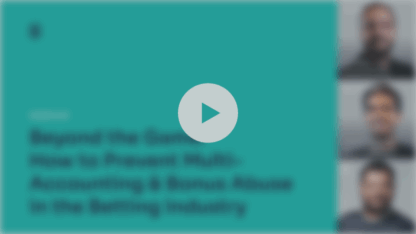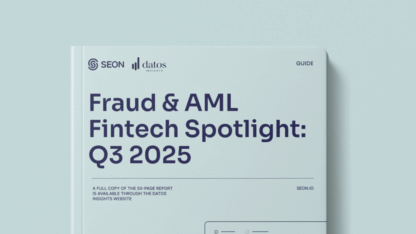In this episode, we speak with Tom Hughes, a former white-collar criminal turned consultant on accounting fraud.
Throughout his long and fruitful professional career, Tom Hughes has been a banker, manager for touring musicians and CFO. But it’s his convictions for stealing money from clients as an accountant that turned his life around.
After serving his time in a federal U.S. prison, Tom founded the website HireAThief.com, where he offers his services to businesses who want to avoid being victims of accounting fraud – the very crime he used to commit himself.
In this episode of the Cat and Mouse podcast, he discussed his life story and gave remarkable insights into white-collar fraud. Here are five key takeaways:
White-Collar Fraud Is Often More Opportunistic Than Calculated
According to Tom, fraudulent accountants and auditors rarely commit premeditated crimes. As he told our host:
“I am certainly no criminal mastermind. I never set up complex or sophisticated fraud. Virtually everything I did was a sometimes clumsy crime of opportunity. I saw the money. I saw a weakness. And simply took it.”
In fact, Tom argues that a thief is going to take money, no matter what the circumstances. In essence, he believes it’s less about the environment, but rather the ethical make up of individuals your business surrounds itself with.
Technology Makes Things Easier For Fraudsters
“The technology certainly makes things easier. I can reach out and steal from someone in South Africa or Argentina or across the street with about the same amount of effort. (…) it will make things easier both with the distance involved, where you can reach out and steal from anywhere, and the number of people you can steal from all at once.”
Still, Tom emphasized the idea that the tools might change, but the mindset is the same, whether it’s a wannabe fraudster or organized crime ring: some people will have no qualms about defrauding your and your business, no matter how they do it.
Thriving Business Owners Were The Easiest Targets
When asked about what made a good target back when he was still defrauding clients, Tom says:
“My ideal target was a client who was so thrilled to be in business for himself, doing what he loved – whether it was machining parts or grooming dogs or brewing beer – that he was so delighted to be doing his job that he didn’t care what was going on in his office. (…) He wanted to do what he did, and leave the administration and the finances to someone else.
Tom would understand that a hands-off approach to the inner workings of the business would make these people easier to defraud.
And here I would come, all smiles, and say: “I’m an accountant, tedious is my comfort zone.” And if I had a client who was not paying attention, it was going to cost him.”
Prevention is Better Than Cure
A thought that will be familiar to all the fraud fighters out there: by the time fraud happens, it’s already too late.
“In general, 80 to 90% of fraud fighting comes with prevention. When it comes to investigation, to nailing down who did what, to finding an offender, to seeking reimbursement… All that activity takes place after your money is gone.”
While not glamorous, it does go to show that prevention and careful planning is indeed the way to go, whether you are a small business or a global leader.
“I believe that 80 to 90% of your time should be spent in prevention and developing solid internal controls, imagining how you could get stolen from and then addressing these weaknesses.”
Key Takeaways – Understand The Fraudster’s Mindset
One point Tom keeps reiterating throughout the interview is that fraud will happen at some point or another. And it’s not because you are a particularly high target or valuable one. Any industry is at risk, simply because a criminal mindset will try to profit from anyone.
Which is to say: you should never rest on your laurels when it comes to fraud prevention. Educating yourself and your team about the trends, techniques and tools is certainly our goal here with the Cat and Mouse podcast, and we hope you’ll find this interview with Tom as insightful as we did.
More information about Tom Hughes on HireAThief.com
You might also be interested in reading about:
- SEON: Payment Fraud Detection and Prevention
- SEON: Fraud Detection & Prevention
- SEON: Top Fraud Management Systems
Learn more about:
Data Enrichment | Browser Fingerprinting | Device Fingerprinting | Fraud Detection API








